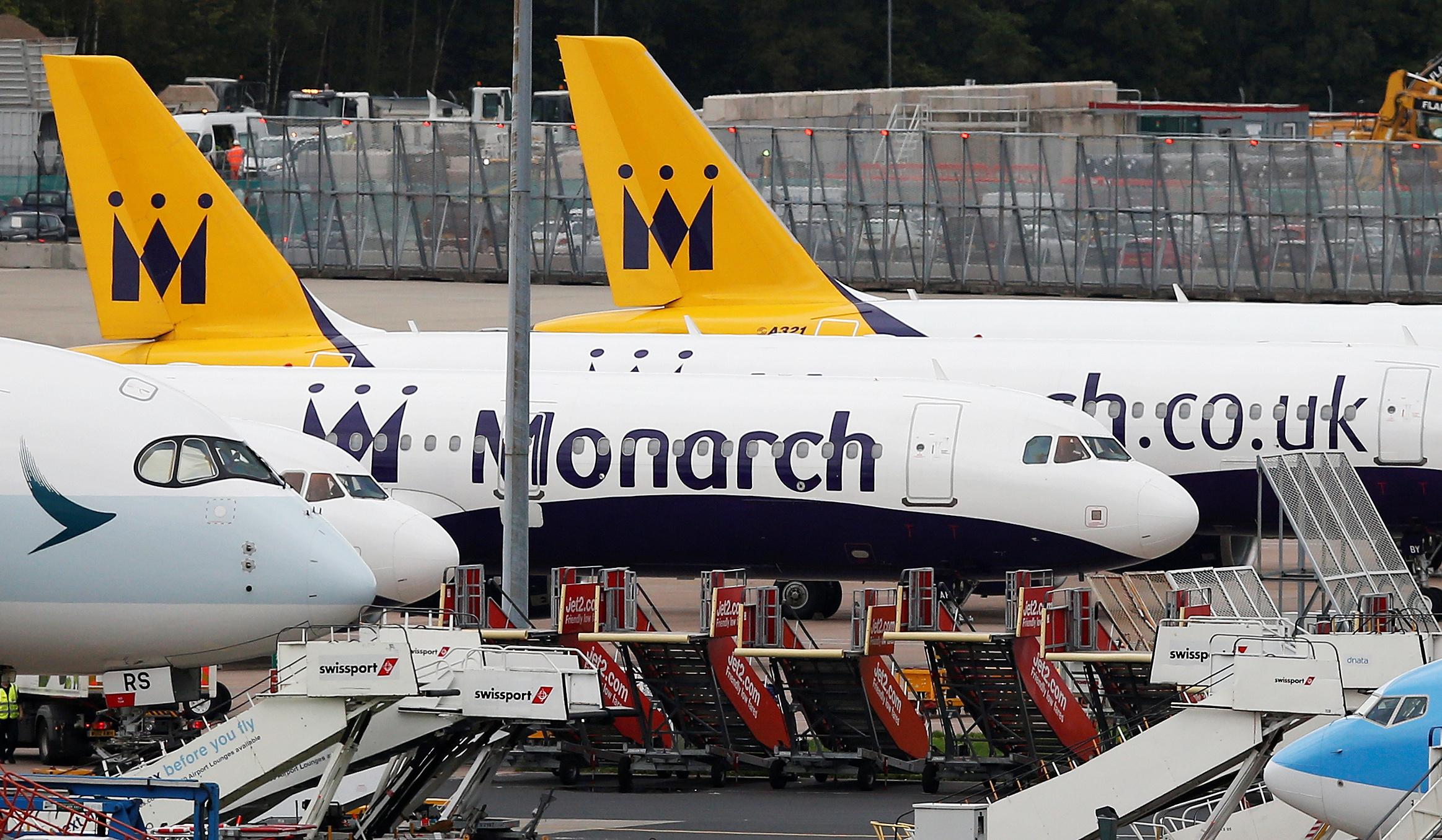Monarch Airlines: Calls for an inquiry but it was probably always doomed
Lord Myners is unhappy that majority owner Greybull Capital is a preferred creditor

Your support helps us to tell the story
From reproductive rights to climate change to Big Tech, The Independent is on the ground when the story is developing. Whether it's investigating the financials of Elon Musk's pro-Trump PAC or producing our latest documentary, 'The A Word', which shines a light on the American women fighting for reproductive rights, we know how important it is to parse out the facts from the messaging.
At such a critical moment in US history, we need reporters on the ground. Your donation allows us to keep sending journalists to speak to both sides of the story.
The Independent is trusted by Americans across the entire political spectrum. And unlike many other quality news outlets, we choose not to lock Americans out of our reporting and analysis with paywalls. We believe quality journalism should be available to everyone, paid for by those who can afford it.
Your support makes all the difference.The knee jerk reaction to any troubling event in Britain is to call for an inquiry, so it shouldn’t come as any surprise that Lord Myners, the former City minister and now Labour peer, has called for one to be held into Monarch as the after shocks from the airline's collapse continue.
The trouble is that while inquiries are sometimes designed to seek the truth, they are just as often designed to draw a veil over it, to find scapegoats, and, by so doing, to provide cover for the mistakes and misdeeds of others.
That may be happening in this case, amid an outcry over the handling of Monarch's demise, and the vast sums of public money spent on what is the largest peacetime repatriation of British citizens yet seen.
Lord Myners is unhappy that Greybull, a private equity firm and the stricken airline’s majority owner, will be at the front of the queue when the proceeds from the sale of the company’s assets (landing slots, aircraft) are divvied up. It is owned £150m and enjoys the status of preferred creditor, which is something he is very understandably uncomfortable about.
This situation sets up a tempting narrative: Evil private equity firm mucks up company, walks away with its pockets stuffed with money.
The trouble is, Monarch might not have been flying without it. The investment firm rescued the airline in 2014, in a deal that saw staff having to accept substantial pay cuts and lay offs as the price for it taking control because there otherwise wouldn’t have been an airline.
It then had to pump another pile of cash in to keep the show on the road amid renewed rumblings from regulators about its viability last year. It has since emerged that aircraft maker Boeing helped.
You would presume that at some point (perhaps during the first rescue) discussions were held that ended up with this: OK we’ll kick in some cash because we can see a glimmer of hope of making a return on it in future, but you’d better let us be preferred creditors.
Small wonder given the risks. As airlines go Monarch was a tiddler when compared to the likes of EasyJet or Ryanair, and one that lacked the ability to trade through the geopolitical crunch in which it found itself.
Terrorism did for tourism industry on the North African side of the Med where Monarch had a niche, forcing it into a crowded and ultra competitive European market dominated by larger rivals.
Surviving in that would have been difficult at the best of times. Brexit made it impossible. Monarch’s revenues were generated in weakie sterling. A substantial chunk of its costs were incurred in dollars (fuel) and Euros (landing fees etc).
Faced with all that, the wonder is that the company survived for as long as it did.
In the US, Monarch would have gone into Chapter 11, and would have been able to carry on flying while a solution was found for its future (probably a more or less orderly wind down of the business followed by the sale of the bits as is happening now).
There are encouraging signs that the authorities in the UK, the Department of Transport, the Civil Aviation Authority, Atol, have woken up to the problems caused here when an airline gets into trouble and is abruptly forced to cease flying overnight.
The formulation of a better way to handle a repeat of this situation - and it cannot be ruled it out given the current operating environment airlines face - would be very welcome.
As for an inquiry? It certaintly wouldn’t be a bad idea to cast a critical light on the situation, up to and including the behaviour of Greybull and the other actors, Boeing, the Mantegazza family that used to own the business, not to mention the regulatory and political authorities.
However, it won’t serve anyone if its purpose is simply to generate more heat.
Join our commenting forum
Join thought-provoking conversations, follow other Independent readers and see their replies
Comments